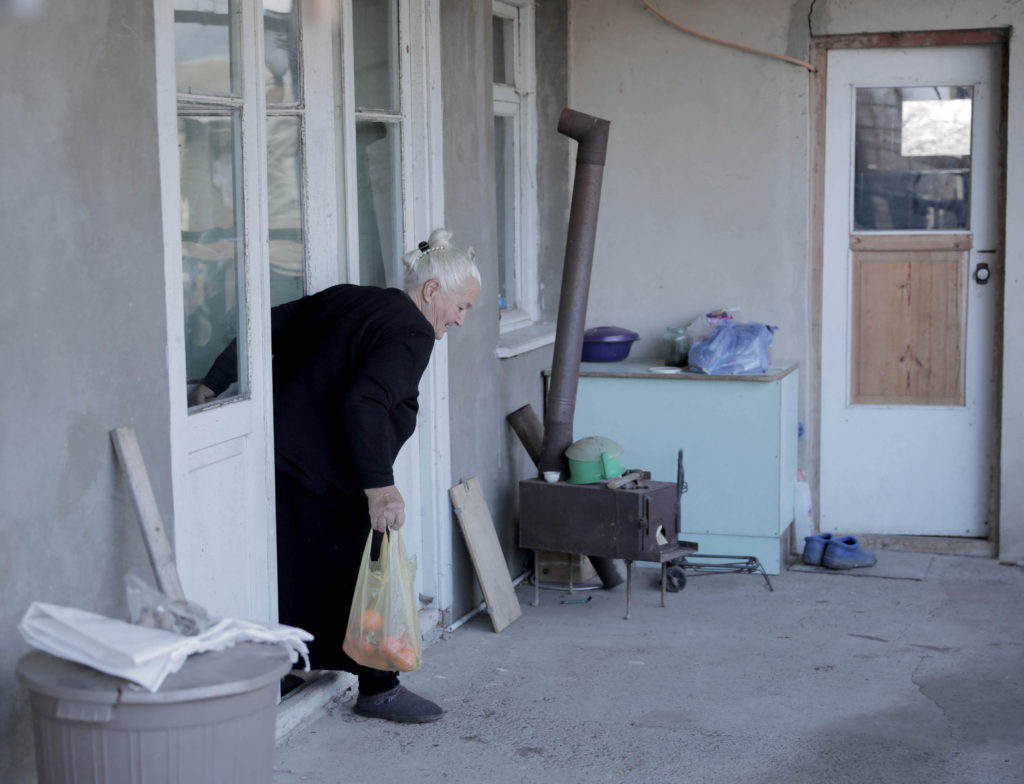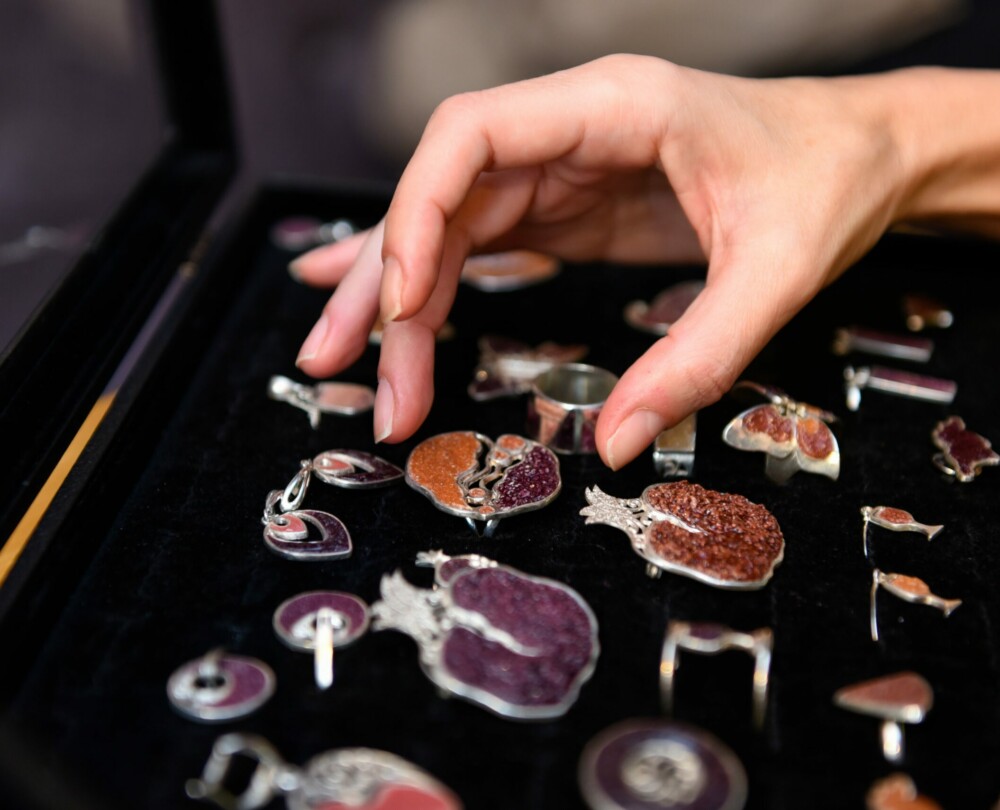

All of us have had our lives changed by coronavirus. Even if we have been lucky enough to avoid the disease, we have all had to restrict our social contacts, or reshape them; however, the direct and indirect effects of the pandemic have disproportionately impacted one group in society — the elderly. As well as being most vulnerable to coronavirus, they spend more and more time alone at home, worrying about their own and their relatives’ health, and facing the uncertainty of not knowing when it will all end.
In March 2020, a three-month lockdown was announced in Georgia. Almost all private and public institutions switched to working in virtual mode, and activities were restricted from the evening to morning hours. It was an unprecedented situation in the country’s recent history. The lockdown was painful, but as the need for the restrictions was obvious, the recommendations of health experts were accepted and observed by most of the country.
The second wave of infections started in Georgia in the autumn. In response to the increased number of cases, restrictions were reintroduced on 26 November and together with many other activities, all inter-city and public transport was banned.
Pensioners, whose health is threatened by COVID-19 the most, faced a tough situation. While younger people turned to online shopping for their basic necessities, this was not an option for the elderly – a group that uses health services most often and visits pharmacies to buy medicines at least once a week.
In order to ensure the safety of the elderly, the Ministry of Health, in collaboration with the Ministry of Economics, in a short time developed postal services for delivering medicines to high-risk groups, bringing medicines from the pharmacy to the customer’s front door.
The delivery service is part of the newly-created Electronic Prescription Platform, which is integrated with the services of the Georgian Post, and covers not only Tbilisi but the entire country. This practice is particularly efficient in dealing with the long-term regular supply of medicines, for example for chronic diseases.
Indeed, ePrescription is one of the areas in which the European Union through its EU4Digital initiative is working to establish common guidelines across the Eastern Partnership region, with a view to ensuring that the system can work across borders. And in June, Georgia’s ePrescription delivery was showcased at a virtual meeting of the EU4Digital eHealth Network to discuss COVID-19 and data sharing of disease statistics, as well as country best practices in managing the pandemic.
Implemented in the Eastern Partnership since 2019, EU4Digital supports the development of key areas of the digital economy, market and digital society in line with EU norms and practices. eHealth is one of the six priority areas of the programme, supporting the development of common guidelines for the rollout of electronic health services and data management, and cross-border collaboration on common challenges.

It’s an area where Georgia has been ahead of the game. The Head of the IT Department of the Ministry of Health, Mikheil Janiashili, says Georgia had already introduced patient electronic signatures, electronic records and electronic prescriptions in the health system before the pandemic struck, making it easier to roll out additional services at short notice. With the service-oriented architecture already in place at the Ministry of Health, it was possible effortlessly to activate, deactivate or improve various services.
“We were able to link a prescription, electronically prescribed by the doctor for chronic diseases, to the postal delivery service. In our database we had the list of recipients of these medicines. The list was provided to the post, and the post started home delivery of the medicines. The doctor would mark in the relevant field that this beneficiary belongs to the specific category, and needs home delivery of the medicine. The rest was technical work done by the postal service. This operated successfully during the lockdown and is functioning successfully so far.”
Mikheil Janiashvili, Head of the IT Department of the Ministry of Health
Janiashvili says the ePrescription delivery service idea was born from the emergency needs of the pandemic: “We simply discussed what might be done in a short time and what effect the people would feel immediately.” As a result, during the strict three-month lockdown, the elderly were given the opportunity to receive their medicines without leaving their homes.

Electronic health specialist of the policy department of the Ministry of Labour, Health and Social Affairs, Nia Khachidze, says the project was made possible by linking the ePrescription service to the post.
“The quantity of medicines is defined by doctors – the patients will receive the amount they prescribe. The patient does not need an Internet connection. Through communication with the patient, the family doctor decides which medicine the pensioner needs, and writes the electronic prescription. This prescription is reflected in the system, where it is also seen by the post, and then the post delivers the medicine. The project turned out to be really successful, and proved its value,”said Nia Khachidze.
Sophio Margiev is one of the project’s beneficiaries. Aged 78, she lives in Mtskheta-Mtianti village, Chardakhi, and needs long term medication for her heart and blood pressure. Before the launch of the service, she would have to ask different people to bring her medicines for her.
“To tell the truth, I was very happy when the doctor called me for the first time and said that because of the lockdown I could not go out and the medicines would be delivered to me. I am in need, I am alone, almost unable to walk, and so I was happy, this is very comfortable for me. At first, they came in early March and brought a three-month supply of the medicines, and the second time in late October. I will not need more until the New Year. I have heart and blood pressure problems. They bring all the medicines prescribed by the doctor. Together with the medicines they also brought masks.”
Sophio Margiev, 78

Sophio is a lonely pensioner. Most of the houses around her are uninhabited; nobody lives there to ask for help. She moves with difficulty and said she hoped the project would continue in the future, even after the restrictions are lifted.
Home delivery of medicines would have been difficult had it not been for the digitalised prescription database. Otherwise, this project would have taken months to get off the ground, during which people in high-risk groups would still have to physically visit pharmacies.
“The project was launched in the spring when the lockdown was announced. If necessary, it would be easy to extend it and to continue the home delivery of medicines. We managed to implement this service effortlessly since in terms of electronic services we were in advance of Eastern Partnership countries, with an established foundation. An electronic prescription enables to build on it any compatible idea at any time, and home delivery of medicines turned out to be such an idea,” said Nino Esakia, EU4Digital country coordinator for Georgia.

As Esakia says, this project could be developed in many ways: other target groups are also interested in the home delivery of medicines – e. g. people with AIDS or TB, isolated people with disabilities, etc.
The COVID-19 pandemic has demonstrated the importance of digital initiatives in the health system. Indeed, technology has been a key part of the EU response to this unexpected global threat, and EU4Digital plans to expand its support for eHealth in the Eastern partner countries beyond 2021. Georgia has shown it is well placed to take advantage, and a unified digital space would enable the country to provide improved care for those members of society who need it most.
Through the EU4Digital initiative, the EU supports the creation of harmonised national frameworks for eHealth among the Eastern partner countries, and with the European Union.
EU4Digital will benefit patients, health systems and professionals by supporting the effort to create eHealth systems and ensuring cooperation with the EU and among partner states.
Ultimately, the improvement in eHealth systems will result in an improvement of citizens’ health, more efficient services, insurance services with better responsiveness and improved regulations.
Find out more on EU4Digital’s support for eHealth on the EU4Digital website.
The full story was published on on.ge.
- Georgia
- eHealth

12/02/2024
Resilience and digital transformation: Ukrainian universities in times of war
The digital technologies that support research and education (R&E) have been facing wartime challenges in…
Read More
30/01/2024
Wine Diamond — future ambassador to Europe of centuries-long Georgian tradition
“I had a previous life.” This is how Tamar Abuladze, the founder of Georgian brand ‘Wine Diamond’, begins the…
Read More
15/08/2023
The personal touch: Ukrainian wood company polishes its eCommerce strategy
“Wood is the all-time best material for making goods,” says Volodymyr Popovych, founder of ‘LIGNO’ in Western…
Read More

12/02/2024
Resilience and digital transformation: Ukrainian universities in times of war
The digital technologies that support research and education (R&E) have been facing wartime challenges in…
Read More
30/01/2024
Wine Diamond — future ambassador to Europe of centuries-long Georgian tradition
“I had a previous life.” This is how Tamar Abuladze, the founder of Georgian brand ‘Wine Diamond’, begins the…
Read More
15/08/2023
The personal touch: Ukrainian wood company polishes its eCommerce strategy
“Wood is the all-time best material for making goods,” says Volodymyr Popovych, founder of ‘LIGNO’ in Western…
Read More


